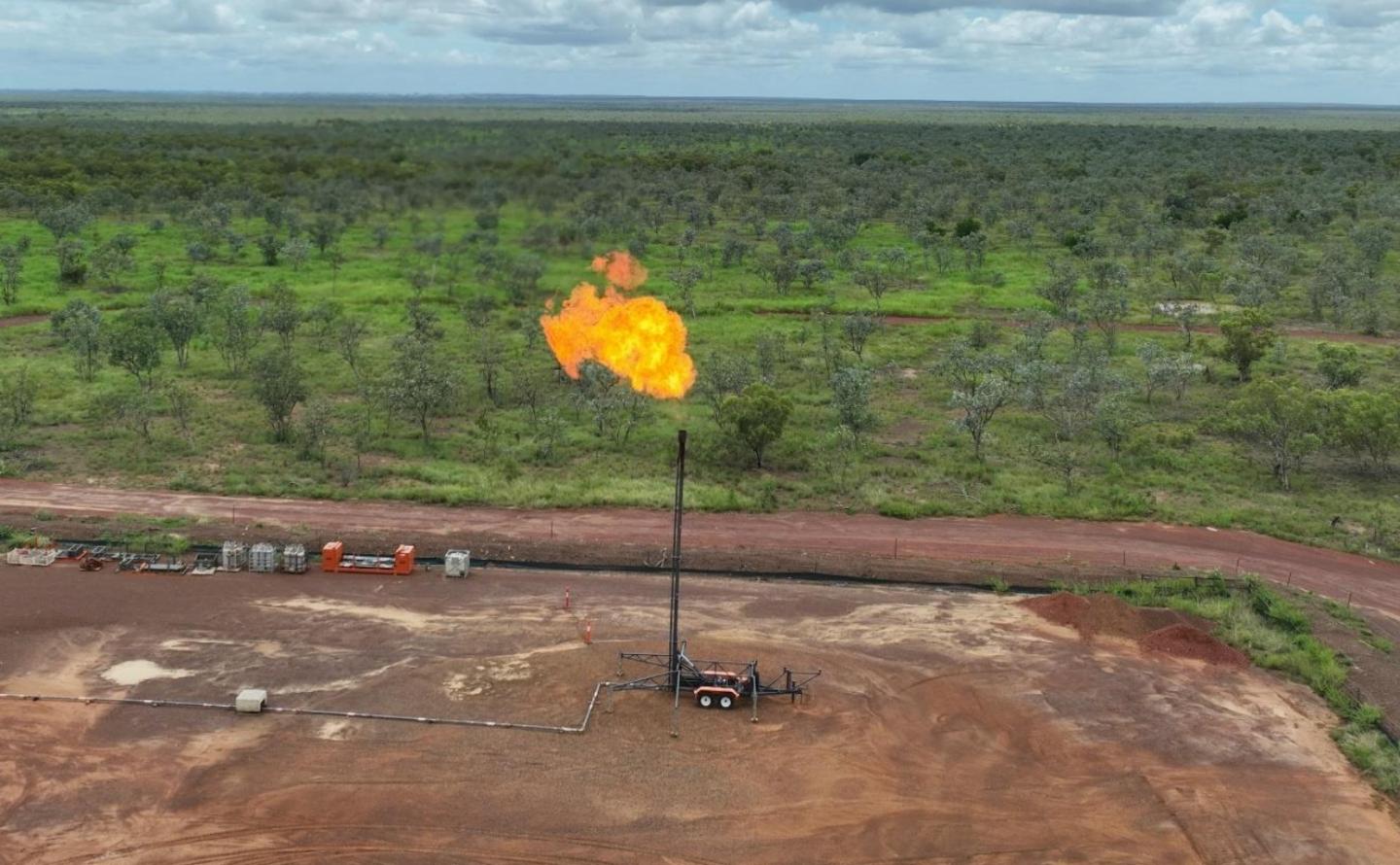Empire Energy says it has boosted production ambitions by lifting its average 30-day gas flow rate by more than 17 per cent in initial tests held at the NT’s Beetaloo Basin. It says a new rate of 2.81 million standard cubic feet (mmscf) per day at its first horizontal well represents a normalised flow rate of more than 3mmscf a day per 1000m of horizontal section.


Empire Energy Group says it has boosted production ambitions by lifting its average 30-day gas flow rate by more than 17 per cent in initial tests held at the Northern Territory’s Beetaloo Basin.
The company says its new rate of 2.81 million standard cubic feet (mmscf) per day at its first horizontal well, Carpentaria-2H, represents a normalised flow rate of more than 3mmscf a day per 1000m of horizontal section.
Empire, which boasts the biggest holding in the giant Beetaloo Basin gas province in Australia’s Top End, believes the results validate its soaking strategy. It is now incorporating that strategy into its future development plans.
Independent analysis says the company’s development wells could generate 6.2 billion standard cubic feet (BCF) of gas per well on a conservative P50 basis and 8.1 BCF gas on a P10 basis.
The P50 basis signals at least a 50 per cent probability that the quantities recovered will equal or exceed the best estimate, while P10 means there should be a minimum 10 per cent chance that the amount recovered will equal or exceed the estimate.
The company has now crunched the numbers and believes its development wells at 2-H and 3-H in the pilot phase can be drilled and fracture-stimulated to be ready for production for $20 million per well. The figure could drop to $15 million per well for bigger developments once economies of scale kick in. The numbers show an indicative cost of about $2-$3 per mmscf in any future development scenarios.
Fracture stimulation is where the wellbore is filled with high-pressure fluids to create fractures in the rocks. The fluid composition is mostly made up of 99 per cent water combined with a matrix of the kind of chemical additives found around the house and a small amount of sand and clay. The sand and clay find their way into the rock fractures, propping them open and allowing the gas and oil to seep out over time.
With the flow testing now continuing in the background, management’s main focus is the work required for a final investment decision (FID) on a pilot project planned for later this year.
Interestingly, the company believes the recent political wrangling about the future of the Beetaloo Basin and how it fits into the Federal Government’s so-called “safeguard mechanism” in implementing a cut in emissions, has helped provide “clarity” for its project.
Empire Energy managing director Alex Underwood yesterday told the ABC: "As the NT government finalises the implementation of Pepper inquiry, settling the regulatory framework for the Beetaloo is essential to building investor confidence."
Leading into its FID, Empire has a healthy cash balance of $15.7 million and despite an upcoming bill of $3.5 million for last year’s drilling and stimulation, it is also expecting a final payment of about $7.6 million as part of the Beetaloo Cooperative Drilling Program. The company’s $15 million credit facility also remains untouched.
Ultimately, the financial numbers have added to management’s confidence in the cash-making potential of the project.
Empire Energy managing director Alex Underwood said: “The upgraded IP30 rate that Empire has achieved at C-2H, the company’s first horizontal appraisal well within an experimental and therefore unoptimized stimulation design, demonstrates that EP187 has the potential for commercial outcomes in development scenarios.”
China's liquefied natural gas demand is forecast to recover this year as the country emerges from COVID-19 controls. According to analysts Rystad Energy, Wood Mackenzie and ICIS, the Middle Kingdom is expected to rebound to between 70 million and 72 million tonnes this year, jumping up to between 9 per cent and 14 per cent higher than in 2022.
As Empire ticks more boxes on the practical and political side of its project on the road to production, news of even greater demand for gas should only increase the confidence of its bullish board.
Is your ASX-listed company doing something interesting? Contact: matt.birney@businessnews.com.au












